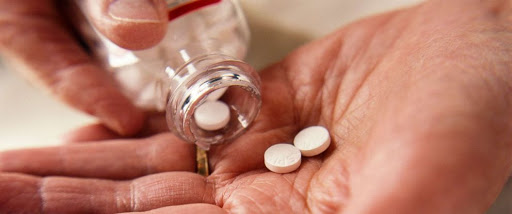An Aspirin A Day Is Dangerous
Are you one of the millions of Americans whose doctor has advised to take a baby aspirin daily in an effort to protect from heart attack or stroke? If you don’t take it yourself, I know you know someone who does. But, do you (or they) know this is no longer recommended in light of recent studies? In fact, an aspirin a day is dangerous.
Aspirin is one of a variety of non-steroidal anti-inflammatory drugs (NSAIDs) that is often used in a preventive mode against future heart attacks. Research has shown that aspirin therapy works for those who have already had a heart attack. However, there is a strong risk of gastrointestinal bleeding and inflammation with regular consumption of NSAIDs.
An aspirin a day …
The typical “preventive” aspirin dose is 81mg – the amount in a baby aspirin. Unfortunately, that dose is not effective in reducing the risk of heart attack. For this benefit, you must take about 325mg a day which creates a more significant risk for gastrointestinal bleeding.
It’s a Catch 22 – taking the low dose doesn’t have the protective benefit we have been told to expect. However, taking the high dose comes with far more risk. Even the American Gastroenterological Association has confirmed significant numbers of hospitalizations related to regular use of NSAIDs.
Are there other anti-inflammatory options?
Yes! There are anti-inflammatory options that don’t carry a bleeding risk. You’ve probably heard of them:
- Good quality Fish Oil – I recommend that you take at least 1500mg of Omega-3s (EPA + DHA) in divided doses daily with meals. What’s high quality? Look for a molecularly distilled brand.
- Curcumin – 500mg of Meriva curcumin (curcumin in a lipid capsule that makes it to the small intestines for better absorption) taken 1-2 times daily.
Don’t quit cold turkey!
If you have been taking either low-dose aspirin other NSAIDs (Ibuprofin, Aleve, full-dose Aspirin) on a daily basis – even for just 1 or 2 weeks – do not stop suddenly. The body’s reaction to such a cutoff can cause blood clots and increase risk. Instead, take half your dose for 2-3 weeks while incorporating at least one of the natural anti-inflammatory choices above in the middle of weaning.
Are you shocked to hear of these dangers? While we have the expectation that medications sold over the counter should be safe, that’s only when used infrequently. If you have been in the habit of popping NSAIDs for common aches and pains, you may at risk. I would recommend that you shift to Meriva Curcumin. Or consider scheduling a chat with me to see whether your symptoms are cries for help from your body.





Leave a Reply
Want to join the discussion?Feel free to contribute!